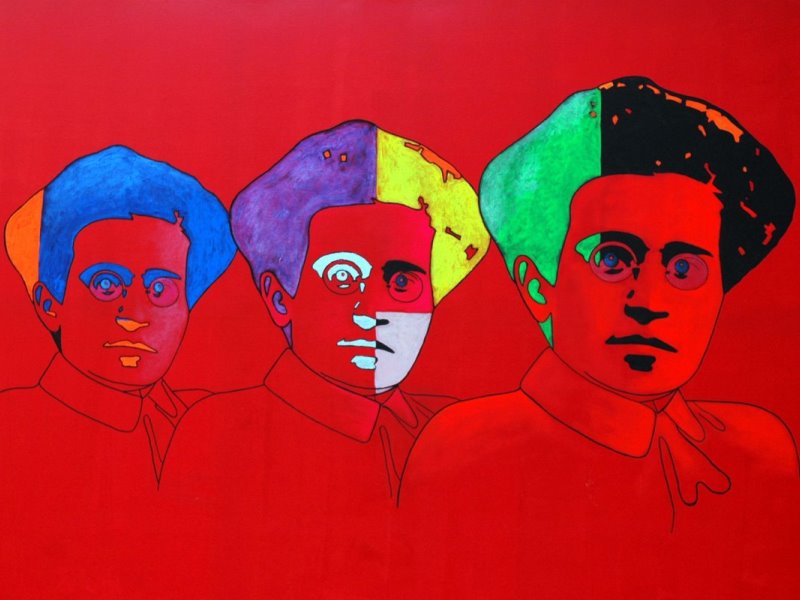
We are delighted to announce an upcoming international conference on Gramsci in the Middle East and North Africa, to be convened at the London School of Economics (LSE). The conference is organized by the LSE Middle East Centre in cooperation with the Middle East and North Africa Research Group (MENARG) and the Politics of the Margins Research Project at the Ghent University. This conference is supported by the Departments of Government, Sociology, and the Atlantic Fellows for Social and Economic Equity programme based at the International Inequalities Institute, LSE.
We live in a time of global crisis marked by uprisings, revolutions and an urgent need to imagine different futures, not least in the Middle East and North Africa.
In thinking about our contemporary moment in historical context, Antonio Gramsci has emerged as a popular theorist in work focused on resistance, revolution, popular movements, capitalism, political economy, memory, temporality, transnationalism and internationalism.
This conference aims to bring together scholars working with Gramsci on any of these themes, with the ultimate aim of publishing a Special Issue on Gramsci in the Middle East and North Africa.
Gramscian approaches to the Middle East and North Africa offer a rich opportunity to bring together postcolonial and Marxist thinking. Scholars in the Middle East and North Africa have long thought with Gramsci, and in the wake of 2011 there is a significant revival in Gramscian perspectives in Middle East Studies.
We aim to build on this growing interest in Gramsci across the globe. We hope to explore, especially through empirically-grounded research, how Gramsci’s work can help us make sense of a moment marked by a significant expansion in resistance and uprising.
Download the conference pack here.
Key note speakers:
Sunaina Maira is Professor of Asian American Studies, and is affiliated with the Middle East/South Asia Studies program and with the Cultural Studies Graduate Group at the University of California, Davis. Her research and teaching focus on Asian, Arab, and Muslim American youth culture, migrant rights and refugee organizing, and transnational movements challenging militarization, imperialism, and settler colonialism. Maira was a Mellon/ACLS Scholars and Society Fellow for 2019-20 and has been doing transnational research project focuses on Arab refugees and immigrants in the Bay Area and in Athens, Greece. Her new community-engaged project is focused on Yemeni Americans in Oakland and the impact of the pandemic, the Muslim Bans, and the war in Yemen. She is the author of five monographs, including The 9/11 Generation: Youth, Rights, and Solidarity in the War on Terror and Boycott!: The Academy and Justice for Palestine. She published a book based on ethnographic research in Palestine, Jil [Generation] Oslo: Palestinian Hip Hop, Youth Culture, and the Youth Movement. Maira co-edited (with Piya Chatterjee) The Imperial University: Academic Repression and Scholarly Dissent which has been much discussed in critical university studies. Maira is a founding member of the advisory board of the US Campaign for the Academic and Cultural Boycott of Israel (USACBI).
Patrizia Manduchi is Director of the GramsciLab and Associate Professor of History of the Contemporary Arab World at the Department of Political and Social Sciences of the University of Cagliari. She has published numerous works on the topic of Islamic radicalism, such as: The fury of Allah (Quaderni di Orientalia Karalitana, Cagliari, 1995); From pen to mouse: Dissemination tools of the concept of jihad (curated by Franco Angeli, Milano, 2006); This world is not a place for rewards: Life and works of Sayyid Qutb, martyr of the Muslim Brothers (Aracne, Rome, 2009); Voices of dissent: Student movements, opposition politics and democratic transition in Asia and Africa (Aracne, Rome, 2011).
Alia Mossallam is a cultural historian interested in songs that tell stories and stories that tell of popular struggles behind the better-known events that shape world history. She was previously a post-doctoral fellow of the Alexander von Humboldt Foundation in Berlin where she was writing a book on the visual and musical archiving practices of the builders of the Aswan High Dam and the Nubian communities displaced by it. She is also a visiting scholar at Humboldt University’s Lautarchiv exploring the experiences of Egyptian, Tunisian and Algerian workers and subalterns on the fronts of World War I (and resulting revolts in their regions in 1918) through songs that capture these experiences. Some of her writings can be found in The Journal of Water History, The History Workshop Journal, Jadaliyya, Ma’azif, Bidayat and Mada Masr. In producing her research in different formats, she has tried her hand at playwriting with Hassan el-Geretly and Laila Soliman and written “Rawi” in the long-form nonfiction platform 60-pages. An experimentative pedagogue, she founded the site-specific public history project “Ihky ya Tarikh”, and taught at the American University in Cairo, Cairo Institute for Liberal Arts and Sciences, and the Freie Universität in Berlin.
LSE holds a wide range of events, covering many of the most controversial issues of the day, and speakers at our events may express views that cause offence. The views expressed by speakers at LSE events do not reflect the position or views of The London School of Economics and Political Science.
From time to time there are changes to event details so we strongly recommend checking back on this listing on the day of the event if you plan to attend.